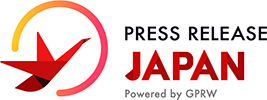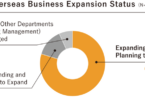Dallas, TX, August 13, 2013 — Despite challenging economic circumstances, the Japanese beer market ended the year with only a marginal decrease in sales. This was partly attributable to the aggressive promotion of premium beer. The beer market in Japan is dominated by four national players (Asahi, Kirin, Suntory and Sapporo) and one regional player (Orion in Okinawa). The four national players account for an approximate 95% share of total market volume. These key players in the Japanese beer market brought new value to Japanese consumer by proactively carrying out promotional campaigns. This reflected consumer interest in quality and high added value, supported by active promotion, and boredom with choosing beer based on prices.
The tax increase however, has cast a shadow of concern over the beer category in Japan for 2013, but with a full picture of its consequences yet to be determined; it remains poised as a sword of Damocles precariously hung over the Japanese Beer sector.
Complete report available @ www.rnrmarketresearch.com/japan-beer-market-insights-2013-market-report.html.
Hopeful signs in the declining market
The beer market has been shrinking over the last ten years in pace with Japan‘s economic decline and shrinking population. Malt-based beer consumption started contracting after the economic bubble burst in the early 1990s. From then on, malt-based beers started being replaced by cheaper happoshu. At the turn of the century, the entire beer market including happoshu began declining. In 2004, cheaper new genre beer beverages started attracting consumers, mainly those from the happoshu market. The total market size continued to decline, while malt-based beer declined at a pace of over 3% per year. Awareness building campaigns against alcoholic beverages and increasing health consciousness also damaged sales.
2012 saw some hopeful signs in the market. The first sign was a slowdown in the malt-based beer market’s contraction. Malt-based beer performed unexpectedly well in 2012, and was anticipated to see positive growth after 16 years of declines until the last month of the year. Sales have ended with a slight drop overall, but the fact that malt-based beer (especially relatively expensive high value-added beers) attracted/regained consumers was good news.
Health benefits continue to be a key driver
Health benefits and ‘healthiness’ have been key trends in the commercial beverage market for years. This trend continues to intensify as the Japanese government and media – concerned over growing national medical expenses in their aging society – keeps emphasizing the importance of staying healthy by having regular medical checkups and avoiding metabolic syndromes and lifestyle diseases.
Japanese consumers are becoming more and more conscious about staying fit by maintaining or reducing their body weight through healthier daily lifestyles, including healthy foods and beverages. There are consumers who try to cut down on alcoholic beverages because they could have a negative impact on their health. In order to help stabilize the economy there has been a rapid growth of alcohol-free beverages with beer, wine and cocktail flavors which are also attributable to consumers’ health interest. In the foreseeable future, health benefits are expected to continue being the main trend driving the market.
High alcohol tax rate on malt-based beer
The tax increase in Japan has cast a shadow of concern over the beer category for 2013. Both an alcohol tax and consumption tax are imposed on beer. However, the alcohol tax varies depending on the amount of alcohol and other ingredients. The alcohol tax per th hl is JPY220,000 for beer brewed from over two-thirds malt, JPY178,125 for happoshu brewed from over 25-50% malt, JPY134,250 for happoshu brewed from 0-25% malt, and JPY80,000 for new genre beer brewed without malt. These tax rates were set in May 2006. The high tax rate is one of the main reasons for the decline in the consumption of malt-based beer, especially during the recession. Nevertheless, the government is reluctant to reduce the alcohol tax rate because it generates cash for dealing with Japan‘s deficit.
Purchase a copy of this report @ www.rnrmarketresearch.com/contacts/purchase?rname=110665.
About Us:
RnRMarketResearch.com is an online market research reports library of 250,000+ in-depth studies of over 5000 micro markets. Our database includes reports by leading publishers from across the globe. We provide 24/7 online and offline support service to our customers. RnR Market Research also offers company data, country profiles, trends, information and analysis on the sector of your interest.
Contact:
Priyank Tiwari
RnR Market Research
TX, Dallas North – Dominion Plaza,
17304, Preston Road,
Suite 800, Dallas 75252.
+1 888 391 5441
sales@rnrmarketresearch.com
http://www.rnrmarketresearch.com
Contact: Priyank Tiwari, sales@rnrmarketresearch.com, +1 888 391 5441
Category: Food & Beverages
Word Count:778
Tags: beer market, database, japanese beer, beer beverages, Lifestyle diseases
Weblinks: http://www.rnrmarketresearch.com






